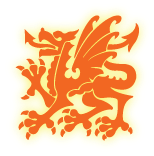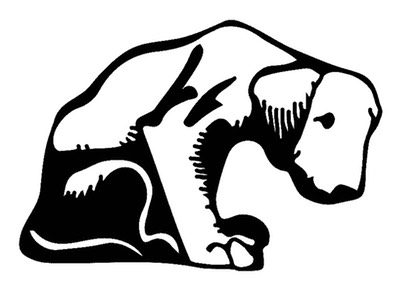Prologue
page 2 lines 16-17.
For truth hath shapes strange and terrible.
And this truth a most terrible one.
perhaps, Shelley's Prometheus Unbound?
Dreams and the light imaginings of men,
And all that faith creates or love desires,
Terrible, strange, sublime and beauteous shapes.
page 2, line 22.
…a weapon of cowards. You poisoned…
Phineas Fletcher, Sicelides (1614), III, v.
The coward’s weapon, poison.
page 2, line 28.
A trial is a coward’s weapon also.
Robert Burns, Love and Liberty—A Cantata, 1.254.
Courts for coward’s were erected,
Chapter 1
Chapter 2
page 17, line 15.
The devil damn thee black!
Shakespeare, Macbeth, V, iii, 11.
page 20, line 35.
E. Nesbit
page 33, line 19.
Angels and ministers of grace defend us!
Shakespeare, Hamlet, I, iv, 39.
Chapter 3
page 50, line 15.
…this bodes some strange eruption to our state.
Shakespeare, Hamlet, I, i, 68.
Chapter 4
Chapter 5
page 82, lines 27-29.
Shut up, Horatio.
My philosophy’s as good as yours!
Shakespeare, Hamlet, I, v, 191-192.
There are more things in heaven and earth, Horatio,
Than are dreamt of in your philosophy.
Chapter 6
Chapter 7
Chapter 8
Chapter 9
page 131, lines 29-31.
The adage, my lord, is, ‘Be what you would seem to be’; it is not ‘Seem to be what you would be.’
Lewis Carrol, Alice’s Adventures in Wonderland, Chapter IX: The Mock Turtle’s Story.
Chapter 10
page 138, lines 2-3.
…what tempest of the spirit is this?
Charles Cardinal Journet
…the great tempest of the Holy Spirit carrying souls.
page 140. line
Sits the wind in that quarter?
Shakespeare, Much Ado About Nothing, II, iii, 108.
page 145, lines 18-19.
Aroint thee. And she called us something like ‘onions,’…
Shakespeare, Macbeth, I, iii, 7.
‘Aroint thee, witch!’ the rump-fed ronyon cries.
Chapter 11
Chapter 12
page 175, lines 26-27.
Strange company, my lord.
’Tis strange to thee.
PD> “’Tis strange to thee” is an echo of Prospero’s line to
PD> Miranda in THE TEMPEST. She says, “O brave new
PD> world,/That has such people in’t,” and Prospero replies,
PD> “’Tis new to thee. (Act V, scene 1, lines 182-84, at
PD> least in the Arden Edition).
page 178, lines 24-28
…shalt tell me all strange wonders that befell thee.
And swear nowhere lives a woman true, and fair.
John Donne, Song. (Goe, and catche a falling starre), lines 13-17.
Thou at thy returne wilt tell mee
All strange things that e're befell thee
And sweare
no where
Liues a woman true and fayre
Chapter 13
page 185, line 35.
Move down, I want a clean plate.
Lewis Carrol, Alice in Wonderland, Chapter VII — A Mad Tea-Party
I want a clean cup, let’s all move one place on.
Chapter 14
page 191, lines 23-24.
If pigs had wings, they’d be pigeons.
Proverb
page 192, lines 4-5.
They say the ass is known by his ears.
Proverb
page 193, lines 15-16.
This is a very midsummer madness upon us all.
Shakespeare, Twelfth Night, III, iv, 62.
This is very midsummer madness.
Chapter 15
page 203, lines 30-33.
Who goes there?
It’s us and we don’t know how to unfold ourselves…
Shakespeare, Hamlet, I, i, 1-2.
Who’s there?
Nay, answer me. Stand and unfold yourself.
Chapter 16
page 213, lines 23-24.
Ted felt as if he had told his French teacher that oeuf meant ear.
[oeuf means egg.]
page 216, lines 25-26.
…when follies come they come not single spies but in battalions.
Shakespeare, Hamlet, Iv, v, 78.
When sorrows come, they come not single spies,
But in battalions.
Chapter 17
Chapter 18
page 233, lines 20-21.
Maybe you’ll stab him through the arras because you think he’s Andrew.
Shakespeare, Hamlet, III, iv, 7-30.
[As Hamlet stabbed Polonius thinking he’s Claudius]
page 237, line 2.
In for a penny, in for a pound.
PD> “in for a penny, in for a pound” is W.S. Gilbert
PD> — it’s in Act II of IOLANTHE.
Chapter 19
page 251, line 21.
The proper study of Mankind is Man.
Alexander Pope, An Essay on Man, Epistle II, line 2.
Chapter 20
page 259, lines 3-6.
Not I.
Nor I.
You sound like the bad animals in the Little Red Hen.
nursery rhyme
page 261, line 3.
A little water clears us of this deed.
Shakespeare, Macbeth, II, ii, 68.
page 271, lines 10-11.
Fair is foul, and foul is fair.
Hover through the fog and filthy air.
Shakespeare, Macbeth, I, i, 11-12.
Chapter 21
page 274, line 14.
…it’s shorter to go on than to go back.
PD> This is a (somewhat dim) echo of Macbeth’s remark that he is
PD> in blood stepped so far that, should he wade no more
PD> “return would be as tedious as go o’er.” Act IV, scene
PD> 5, lines 137-39.
Chapter 22


